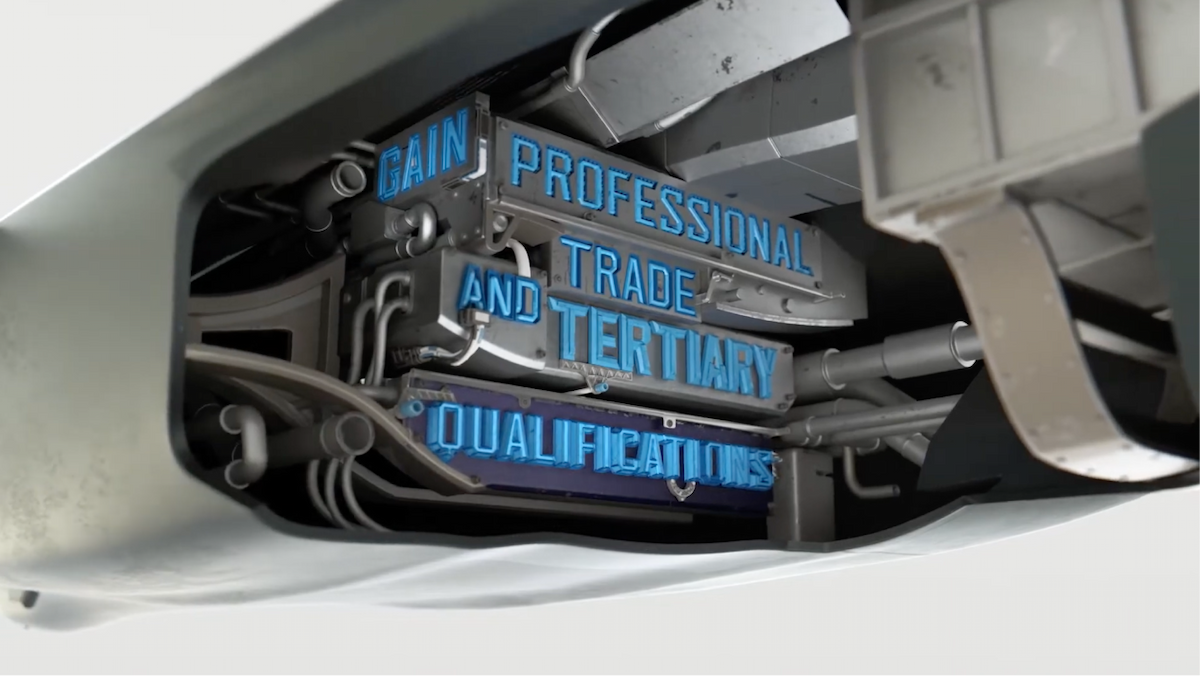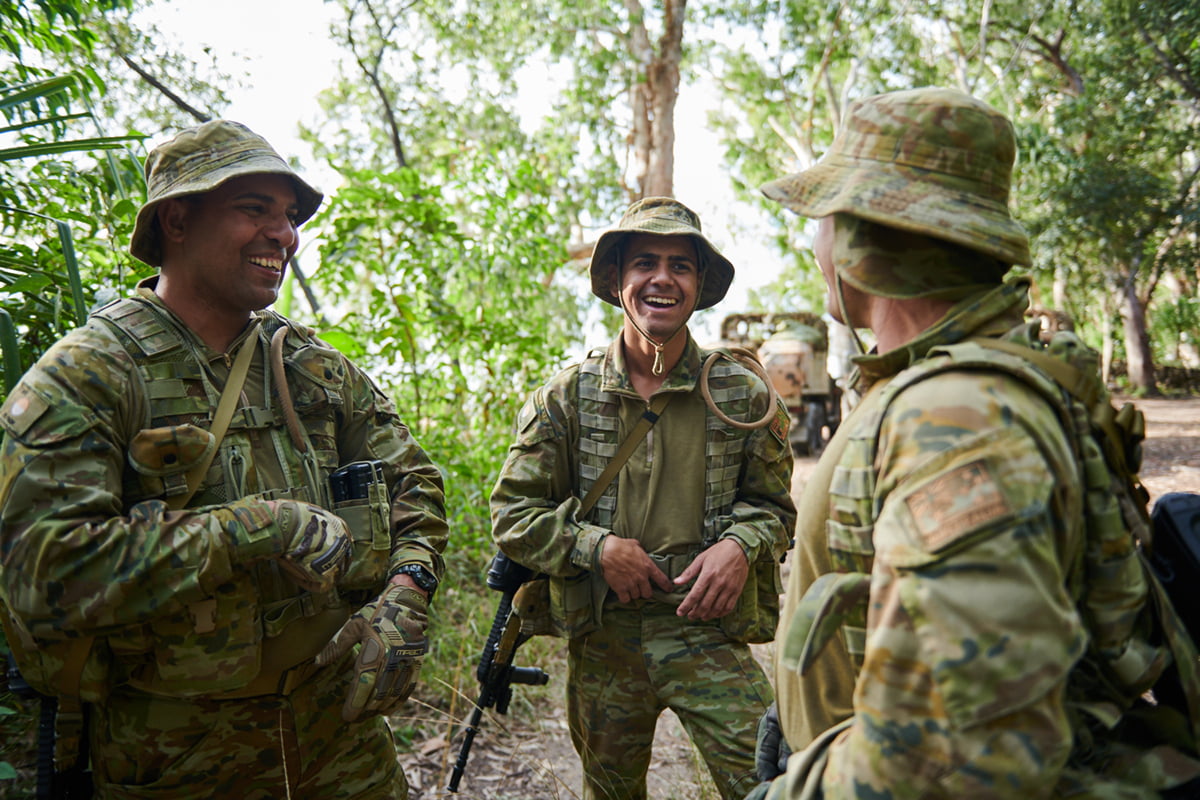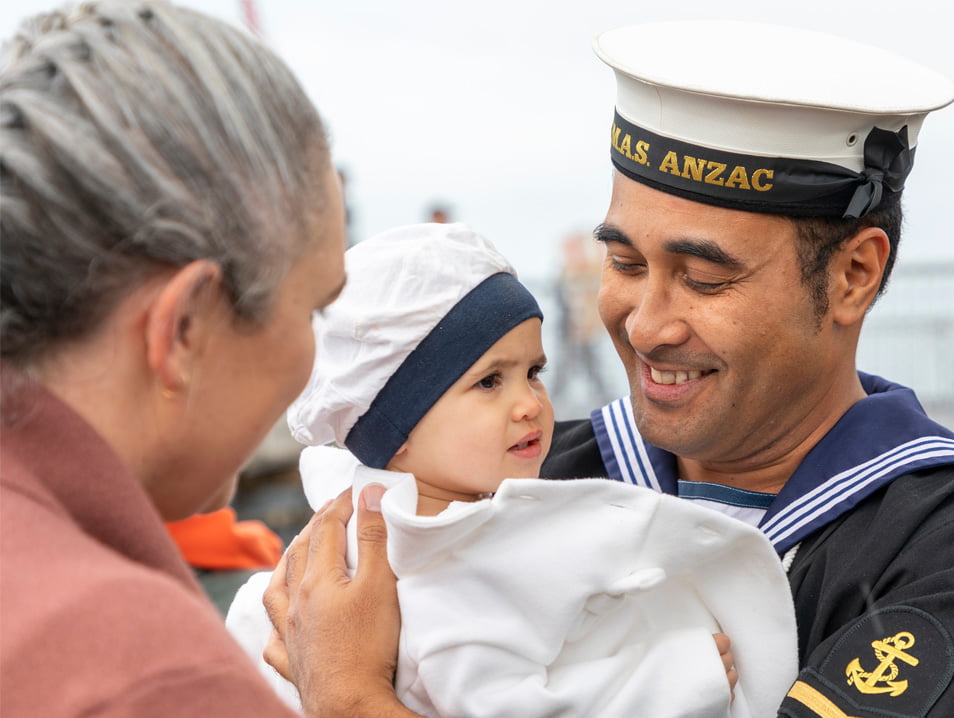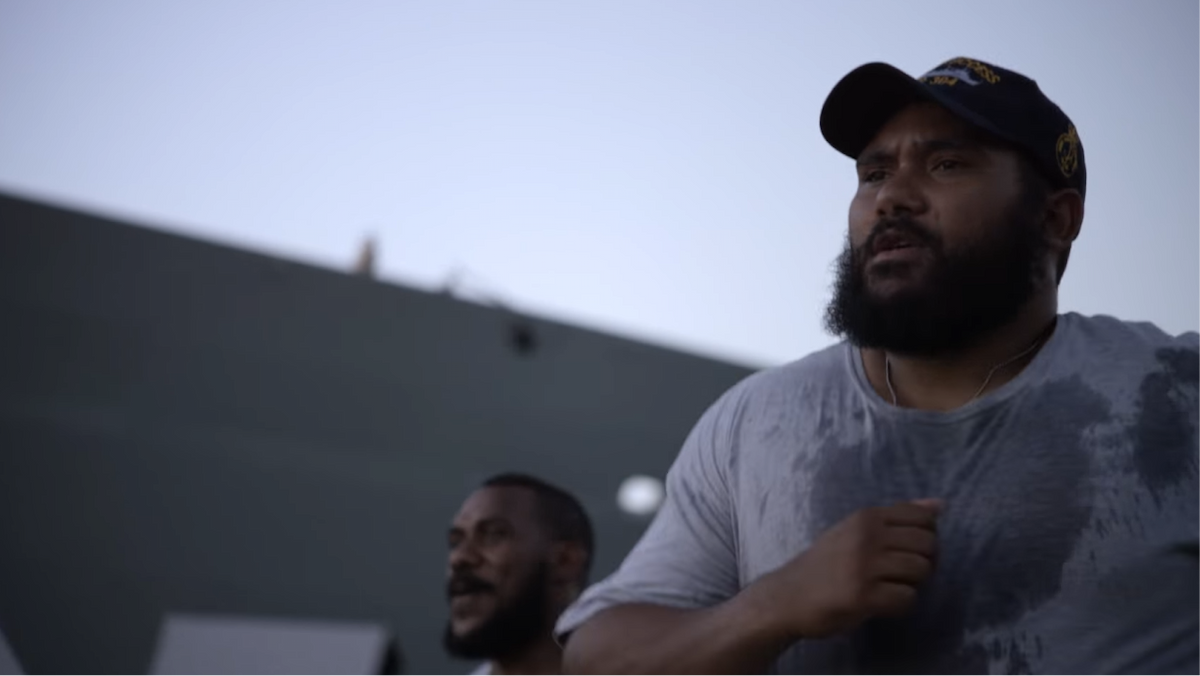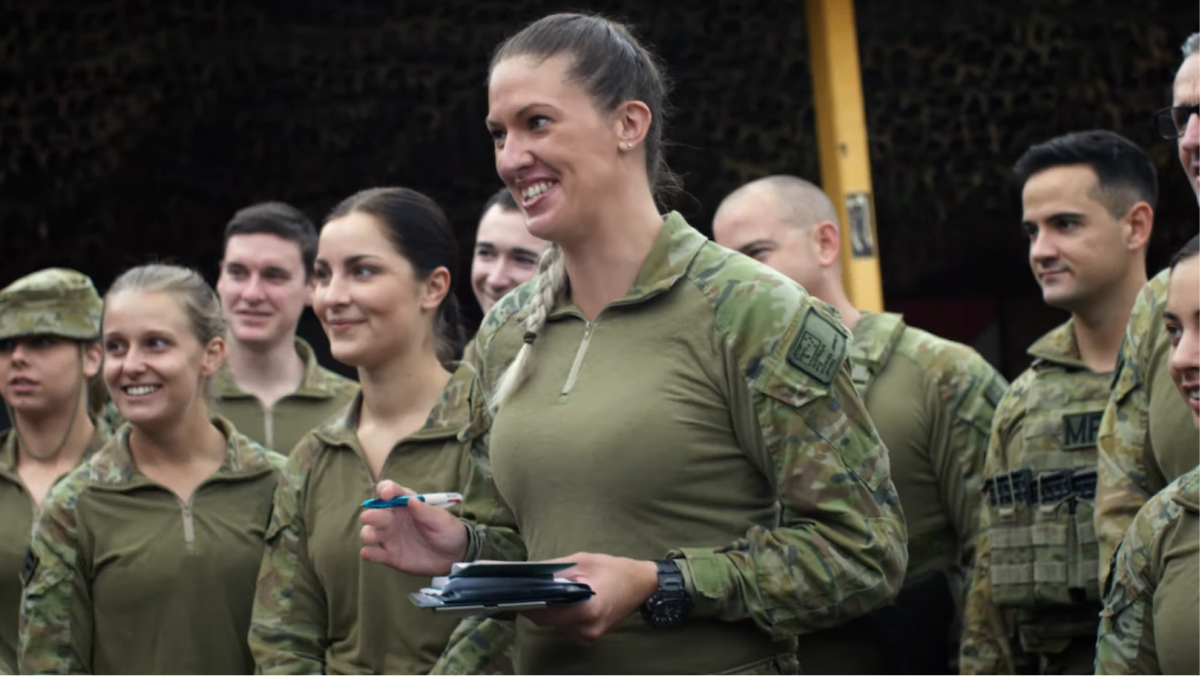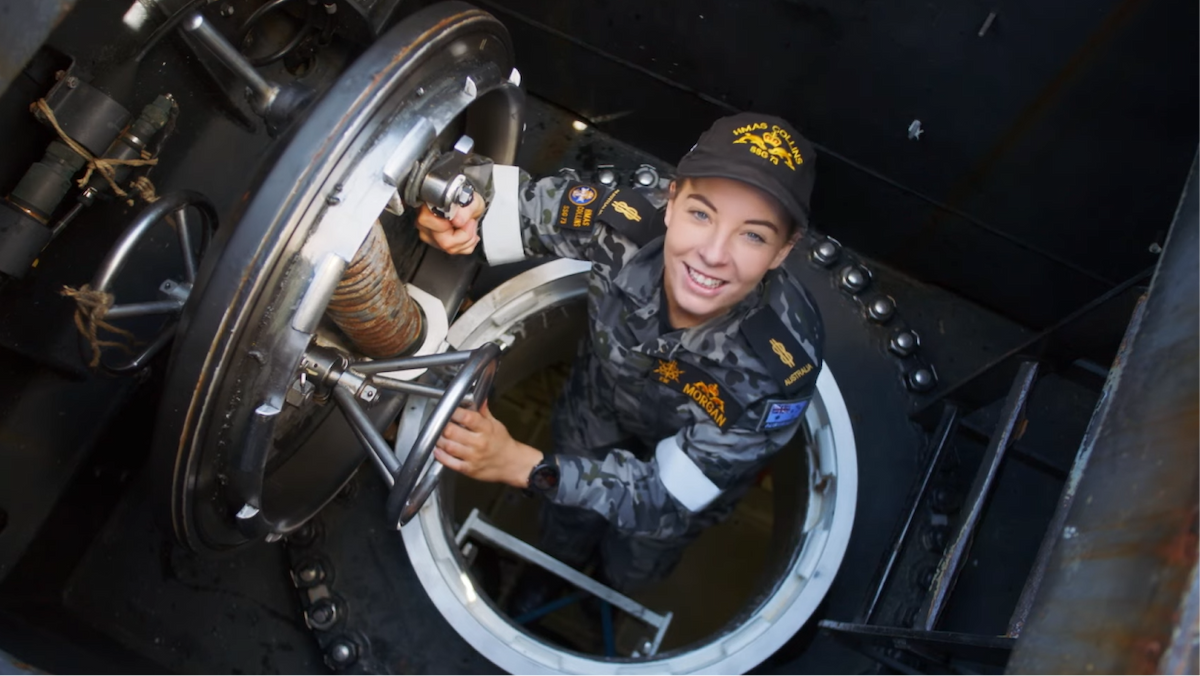LIFE IN THE ADF
The values
we serve by
Our values influence everything we do. They guide us to behave and serve with pride, resilience and respect.
Service
The selflessness of character to place the security and interests of our nation and its people, ahead of one’s own.
Courage
The strength of character to say and do the right thing, always, especially in the face of adversity.
Respect
The humanity of character to value others and treat them with dignity.
Integrity
The consistency of character to align one’s thoughts, words and actions to do what is right.
Excellence
The willingness of character to strive each day to be the best one can be, both professionally and personally.
Careers for all Australians
The ADF gains strength by reflecting the diverse makeup of Australia itself. Our selection and promotion processes are free from cultural, racial and gender bias.
